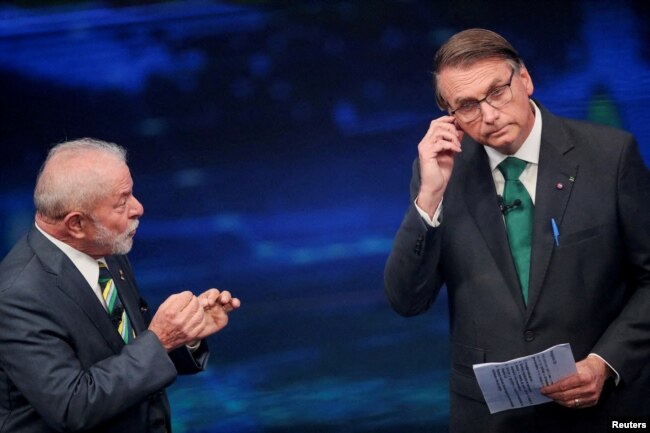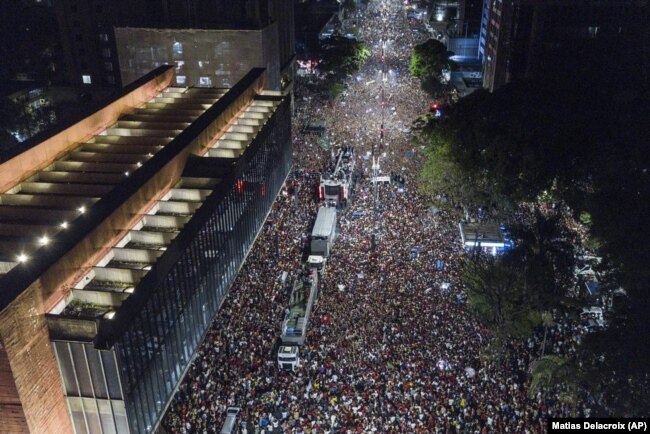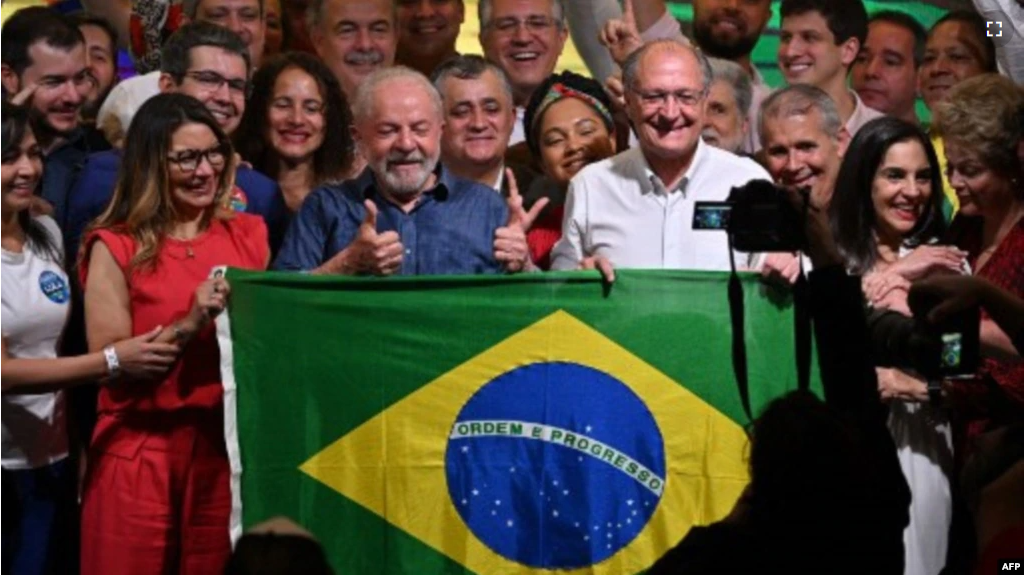In Brazil, Luiz Inacio Lula da Silva has defeated President Jair Bolsonaro in a close election. Da Silva received 50.9 percent of the vote while Bolsonaro received 49.1 percent, according to the country’s election officials.
By Monday morning, Bolsonaro had still not admitted to losing. The delay brings worries that he will dispute the election result.
Before the vote, Bolsonaro had repeatedly said the election system might be unfair and permit cheating. He did not give any evidence to support his statements.
International election observers said Sunday’s election was fair. U.S. President Joe Biden congratulated da Silva on his victory. He said Brazil had “free, fair, and credible elections.”
The victory is a huge comeback for the 77-year-old da Silva. He was Brazil’s president for two terms from 2003 to 2010 and was very popular when he left office. But after his presidency, he spent 580 days in jail on corruption charges. His convictions were later canceled by Brazil’s top court, which ruled his trial had been unfair.
Brazil is closely divided politically between conservatives who support Bolsonaro and liberals who support da Silva.

Thomas Traumann is an independent political expert in Brazil. He compared Sunday’s results to Biden’s victory in 2020.
“The huge challenge that Lula has will be to pacify the country,” Traumann said. “People are not only polarized on political matters, but also have different values, identity and opinions. “What’s more,” he added, “they don’t care what the other side’s values, identities and opinions are.”
Da Silva has said he wants to work with centrists and even people who have some conservative views. In April, he named center-right Geraldo Alckmin, a former opponent, to be his running mate.
Bolsonaro’s conservative administration has been criticized for bad management of the COVID-19 pandemic and for permitting the worst deforestation in the Amazon in 15 years.
Bolsonaro said that da Silva’s victory would bring communism, legalized drugs, abortion and bad treatment of religious organizations. These things did not happen during da Silva’s earlier eight years in office.
Da Silva said he will increase spending on the poor and take strong action to stop illegal clear-cutting in the Amazon rainforest.
“We will once again monitor and do surveillance in the Amazon. We will fight every illegal activity,” da Silva said in his speech. “At the same time, we will promote sustainable development of communities in the Amazon.”

Da Silva’s win joins recent liberal victories across South America, including in Chile, Colombia and Argentina.
I’m Andrew Smith.
Andrew Smith adapted this story for VOA Learning English from reports from the Associated Press and Reuters.
________________________________________________________________________
Words in This Story
credible –adj. able to be trusted or believed
comeback –n. a return to a previous position, often a position of success
conviction –n. being found officially guilty of a crime by a court of law
challenge –n. something that is very difficult to do, often requiring much effort
polarized –adj. characterized by a division into two opposite sides or groups
abortion –n. a medical procedure that ends a pregnancy by removing the embryo or fetus
monitor –v. to carefully check and observe procedures, actions, or situations
surveillance –n. the careful watching of an individual or group, often done secretly by police or security forces
promote –v. to encourage the use of some things, ideas, or actions
sustainable –adj. able to continue indefinitely into the future
